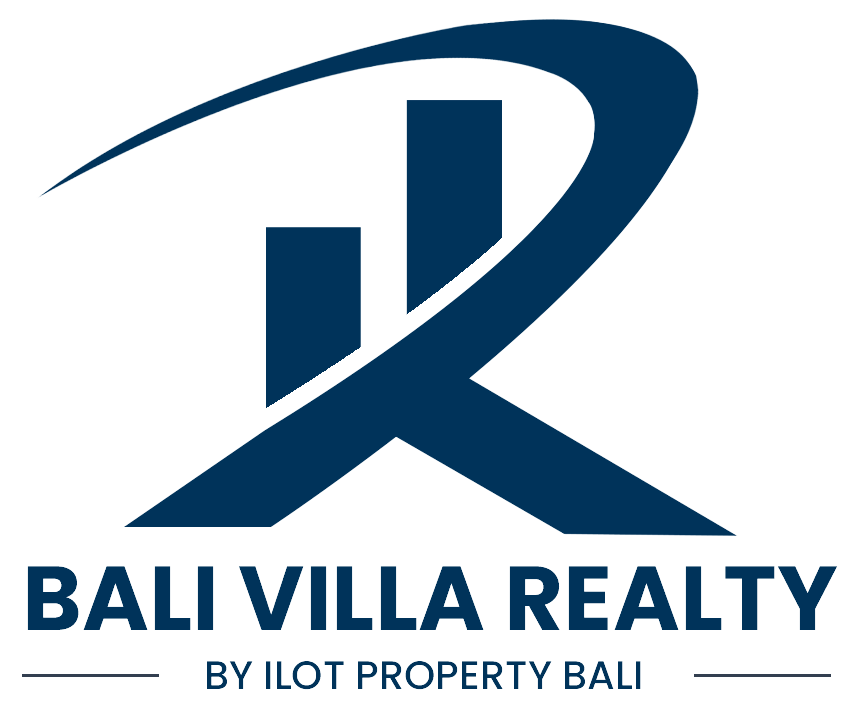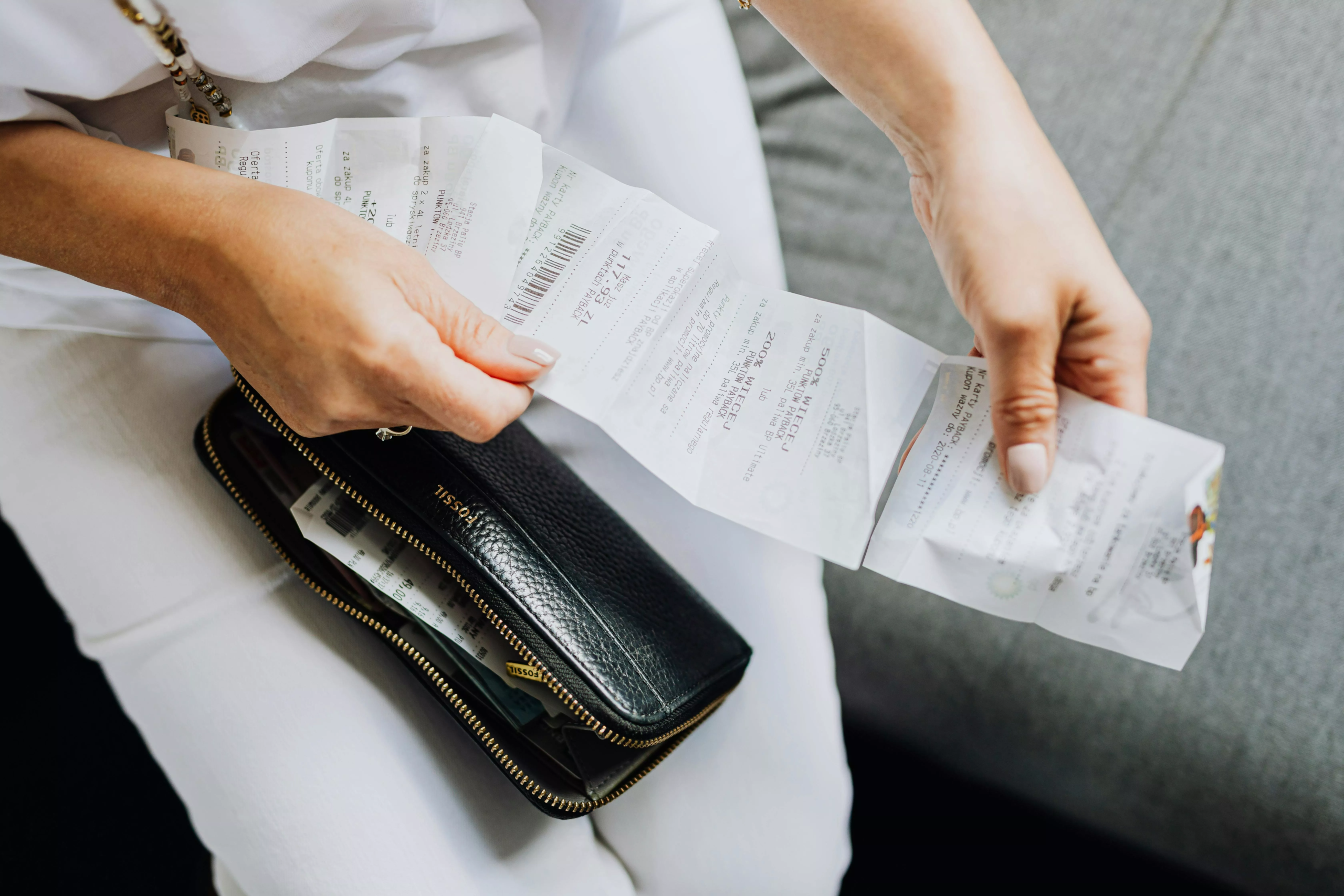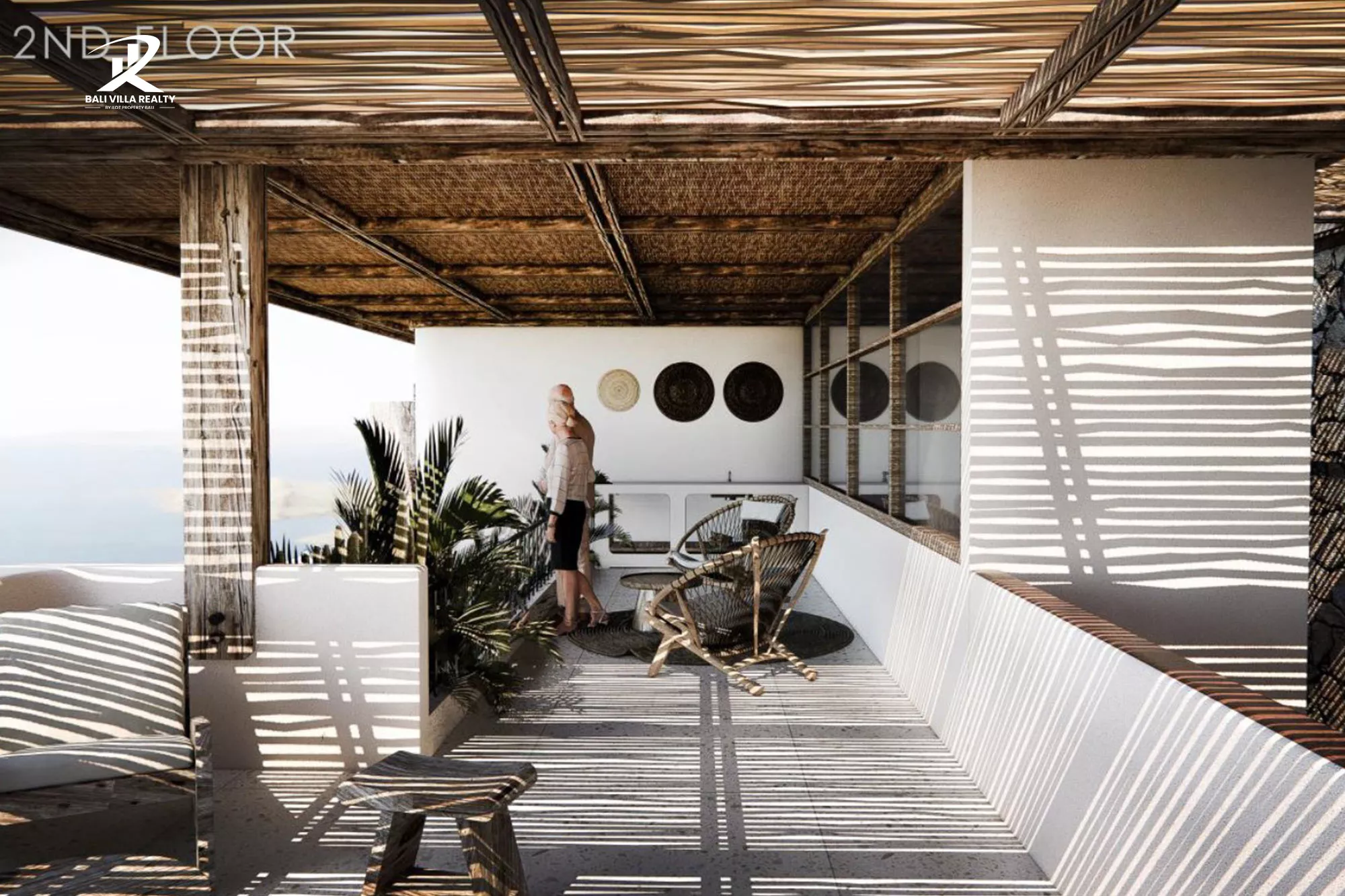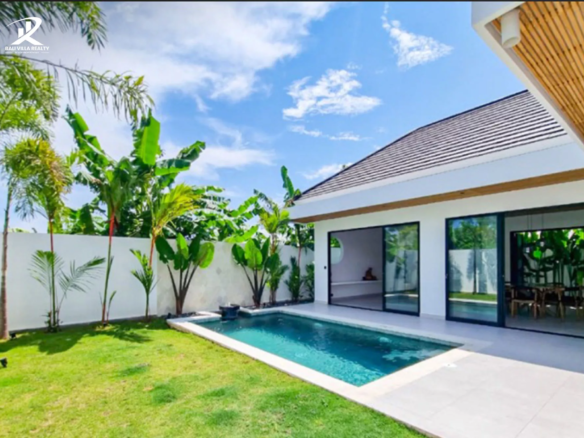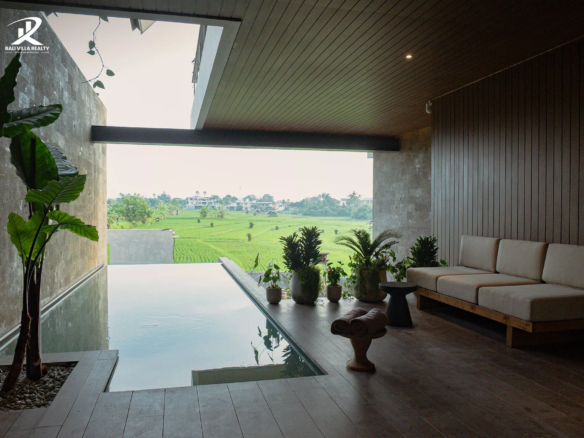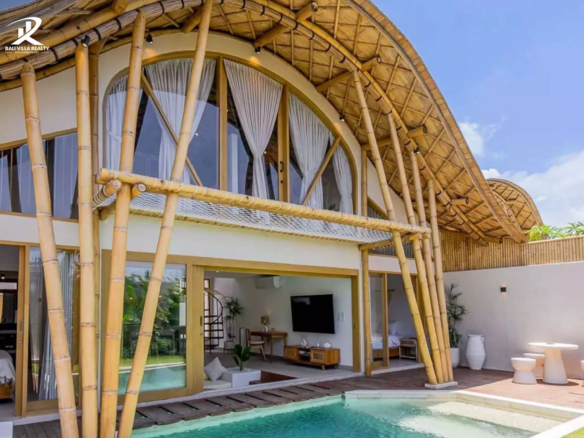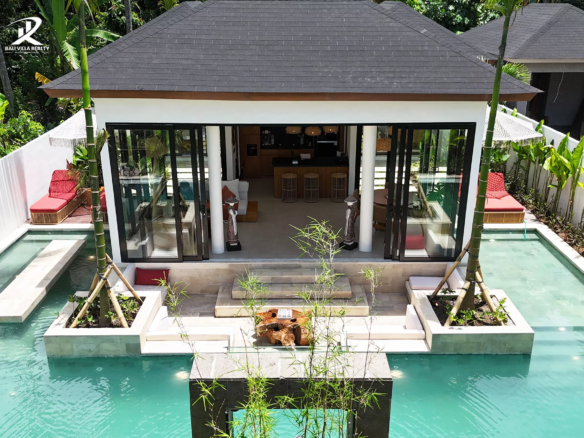Getting your own villa or piece of land in Bali is an exciting journey, but it’s important to understand all the hidden costs when buying a villa in Bali.
Knowing what extra costs to expect ensures a smoother and more rewarding buying experience.
In this article, we’ll walk you through all of the details about hidden costs when buying a villa in Bali, so nothing takes you by surprise, and you can focus on what really matters: enjoying the idea of soon owning your very own Bali villa.
Key Takeaways
- Buying a villa in Bali involves hidden costs beyond the property price — including legal fees, permits, taxes, and management expenses — that every buyer should plan for.
- Key costs include notary and due diligence fees, building permits (SLF, Pondok Wisata), property and rental taxes, and possible leasehold extension fees.
- To avoid unexpected expenses, investors should conduct full due diligence, clarify ownership terms, and choose locations with reliable infrastructure.

1. Legal and Notary Fees

Let’s start with one of the first expenses you’ll encounter: legal and notary fees. You probably expect them, but you might not know exactly what they include. Here’s an overview of the typical legal costs you can expect:
- Notary and legal fees: usually around 1% to 2.5% of the property’s total value. This covers document preparation, ownership verification, and deed registration.
- Drafting agreement: For leasehold or purchase contracts, budget roughly 0.5% to 1% of the property’s value.
- Due diligence: This ensures your property is free of disputes and complies with zoning and land-use regulations. Costs range between $1,000 and $5,000, depending on the property’s size and complexity, and can take a few weeks to complete.
For foreign buyers, it’s important to know that direct freehold ownership isn’t allowed in Indonesia. Most foreigners choose leasehold agreements, since they're the safest and efficient.
Working with a trusted, licensed notary (PPAT) or legal consultant is key. They’ll handle the paperwork (AJB), contracts, and title checks to make sure everything is legitimate and transparent.
If you’re working with Bali Villa Realty, you’re already one step ahead. We offer in-house legal support to guide you through every stage of the process.
Read More: Cost of Property in Bali: What You Need to Know (2025)
2. Building Permit Fees
Many villas in Bali — especially older or newly built ones — may not yet have valid building permits. If the property you choose doesn’t have the proper documentation, you could face unexpected legal or financial costs.
Here are the main permits you should check:
- SLF (Sertifikat Laik Fungsi): This replaces the old IMB permit. If it’s missing, you’ll need to pay additional fees to legalize the structure.
- Pondok Wisata (Rental License): Required if you plan to rent out the property. The license costs around IDR 10 million, and you must have a minimum paid-up capital of IDR 2.5 billion.
3. Property Taxes and Transaction Fees
Taxes are another key part of the process, and knowing them upfront helps you budget confidently. Here are some of property taxes in Indonesia:
| Tax Type | Description | Rate / Payment Details | Notes |
|---|---|---|---|
| Property Acquisition Tax (BPHTB) | A tax on the property’s assessed value, paid within two months of purchase. | 5% | Late payments incur a 2% monthly penalty. Must be settled before ownership transfer (per DJP Online regulations). |
| Land and Building Tax (PBB) | Annual tax based on the property’s market value. | 0.1%–0.3% for land; up to 0.5% for residential buildings | Luxury or prime locations may have higher rates. |
| Income Tax (PPH) | Paid by the seller based on the sale value. | 2.5% | Buyers should confirm it’s settled before purchase completion. |
| Rental Tax | Tax on property rental income. | 10% for residents, 20% for non-residents | You’re a tax resident if you stay in Indonesia >183 days/year. |
| Luxury Sales Tax (PPnBM) | Applies to luxury or high-end properties. | Around 5% of sale price | Usually paid by the buyer. |
| Value-Added Tax (PPN) | Charged on new property sales or certain leaseholds. | 10% | Pre-owned or family-transferred properties are usually exempt. |
| Capital Gains Tax | Charged when selling a property. | 2.5%–5% of sale value | Up to 5% for foreigners without a tax treaty. Keeping purchase and renovation records can help reduce liability. |
There are several tips to help you stay compliant with Bali property taxes that you can learn here.
4. Leasehold Extension (If Applicable)
If you’re purchasing a leasehold villa with only a few years remaining, it’s wise to negotiate an extension early in the process. Here are some important things to remember:
- The longer the lease term, the more secure and valuable your investment becomes.
- Extension costs vary depending on the location and the landowner.
- These fees are usually not included in the listed property price.

5. Maintenance and Management Costs
Once the paperwork is done and the keys are in your hand, the next stage begins—keeping your villa in great condition. Regular maintenance isn’t exactly “hidden,” but it’s often underestimated.
If your villa is used for rentals, expect to spend around 5–10% of your rental income (or about $200–$500 per month) on upkeep, cleaning, pool care, and small repairs.
Many owners also work with a villa management company, which usually takes 10–20% of your monthly rental revenue to handle guest communication, staff management, and marketing. This way, your property investment can run smoothly even when you’re not in Bali.
Utilities & Staff Expenses
Operational and daily living cost in Bali are relatively affordable but can add up depending on your villa’s size and lifestyle.
Electricity, water, internet, and pool maintenance can cost between IDR 3–10 million per month. If you employ staff such as housekeepers, gardeners, or security guards, plan for IDR 2–4 million per person per month, plus bonuses during holidays.
Property Insurance
While not mandatory, insurance is one of those smart “hidden” costs that protect your investment. Coverage for fire, natural disasters, or theft typically costs around 0.1%–0.5% of your property’s value per year, depending on the provider and location.
Read More: Rental Property Insurance in Bali: Why Your Villa Needs It
Building or Renovation Permits
If you’re planning to build or renovate, Indonesia now uses the PBG permit (which replaced the old IMB permit). This approval ensures your villa complies with building and zoning standards. The cost usually starts around IDR 50 million, depending on size, building type, complexity and location.
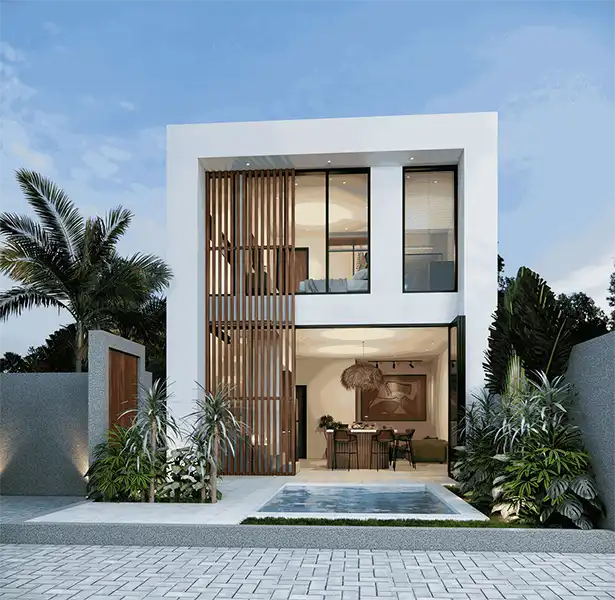
Get a Customized Investment Plan in Bali
With over 15+ years in the market, here’s what we can do for you:
- Find the best location to invest in Bali.
- Reliable guidance on Bali’s property market and laws.
- Personalized strategy to maximize returns and meet your financial goals.
How to Reduce Hidden Costs when Buying Bali Property Investment
Here are a few practical steps to help you minimize risks and maximize your villa investment returns:
1. Conduct Thorough Due Diligence
Begin your purchase by carrying out complete due diligence. Verify land ownership certificates, inspect boundaries, review any existing leases, and confirm zoning and building permits.
Work with a qualified local lawyer and notary who understand villa transactions and foreign ownership. Doing this early helps you identify hidden costs before finalizing the deal.
2. Include Every Expense in Your Investment Plan
When calculating your investment, go beyond the purchase price. Add taxes and transaction fees (typically 6.5–9%), legal or structuring costs, annual maintenance, management fees, and potential upgrades to utilities or infrastructure.
If the villa is for rental income, factor in realistic operating expenses. This gives a more accurate picture of your return on investment in Bali.
Read More: ROI on Bali Villa Investment - Simulator to Calculate Bali Villa ROI
3. Clarify the Ownership Structure from the Start
Since most foreigners buy property under leasehold or right-to-use agreements, make sure you clearly understand the duration, renewal terms, payment responsibilities, and exit options. The type of ownership you choose when buying a villa in Bali can have a big impact on long-term costs and flexibility.
4. Choose the Right Location and Infrastructure
Your villa’s location plays a huge role in avoiding hidden costs. Poor road access, limited utilities, or restricted zoning can lead to unexpected expenses later.
Focus on areas with reliable infrastructure and established amenities to ensure your Bali property investment runs smoothly and remains profitable. Discover the best areas to invest in Bali in our dedicated guide here.
Conclusion
Those are the hidden costs of buying a villa in Bali. Now you can budget confidently, avoid unpleasant surprises, and make choices that truly match your goals.
The good news? You don’t have to handle it all alone.
At Bali Villa Realty, we not only help you find the right villa or land, but our in-house legal team ensures every document, permit, and tax detail is handled correctly from start to finish.
And once you’ve got your dream property, our villa management services can take care of everything from maintenance and staffing to guest bookings, so your investment stays effortless and profitable.
Ready to take the next step? Book your free, no-obligation consultation today to ask further questions or start your investment — hassle-free.
Want to start investing in Bali property?
Have a quick chat with our real estate experts for personalized advice on your Bali investments. No commitment required.
FAQ
While not mandatory, property insurance is highly recommended. It protects against risks like fire, theft, and natural disasters, and provides peace of mind for both residential and rental villas. You can also opt for liability or rental loss insurance if you plan to rent out your property.
Learn more about insurance for Bali villa here.
Leasehold periods typically range from 25 to 30 years, with options to extend up to 80 or 100 years depending on the contract. Always ensure that the extension terms are clearly written in the agreement before signing, as vague wording can cause problems later.
From signing the initial agreement to completing all legal paperwork and payments, the buying process generally takes 1 to 3 months. However, if due diligence, land checks, or permit updates are required, it can extend to 4–6 months.
